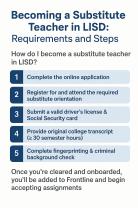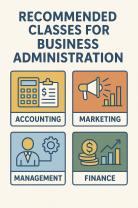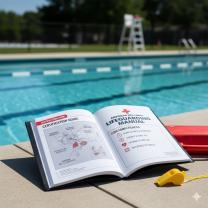How do I become a special education teacher?
Becoming a special education teacher typically involves a combination of education, certification, and practical experience. Here are the general steps to become a special education teacher:
Earn a Bachelor's Degree: Start by obtaining a bachelor's degree in special education or a related field, such as education or psychology. Many special education teacher preparation programs are available at universities and colleges. Make sure your program is accredited by the appropriate education authority.
Choose a Specialization: Special education covers a wide range of disabilities and needs. Decide if you want to specialize in a particular area, such as autism spectrum disorders, learning disabilities, emotional and behavioral disorders, or intellectual disabilities.
Complete a Teacher Preparation Program: Enroll in a teacher preparation program that includes coursework and practical training in special education. This program should lead to state certification. Be sure to check your state's specific requirements for teacher preparation programs.
Student Teaching: Most teacher preparation programs include a student teaching component. During this phase, you'll work under the supervision of an experienced special education teacher to gain hands-on experience in a classroom setting.
Obtain State Certification: To become a licensed special education teacher, you'll need to meet your state's certification requirements, which typically include passing exams (such as Praxis exams) and fulfilling any additional requirements, such as background checks and coursework.
Consider Additional Certifications: Depending on your career goals and the population you want to work with, you may want to pursue additional certifications. For example, you might obtain certification in teaching English as a second language (ESL) or working with gifted and talented students.
Continuing Education: Special education teachers often need to participate in ongoing professional development to stay current with best practices and the latest research in the field.
Apply for Jobs: Once you're certified, you can start applying for special education teaching positions in public or private schools. Consider the age group and disability category you are most interested in working with.
Prepare for Interviews: Be ready to discuss your qualifications, teaching philosophy, and experience during job interviews. Special education teachers often need to demonstrate their ability to adapt teaching methods to meet individual student needs.
Secure Necessary Resources: Special education teachers often work with a variety of resources and tools, such as assistive technology, adaptive materials, and specialized curriculum materials. Be prepared to familiarize yourself with these resources.
Build Relationships: Building positive relationships with students, their families, and other professionals in the education system is crucial in special education. Effective communication and collaboration are key to success in this field.
Stay Informed: Stay informed about changes in special education laws, policies, and best practices. Advocating for your students and staying up-to-date on relevant developments is essential.
Remember that requirements for becoming a special education teacher can vary by state and country, so it's important to check with your local education authority or school district for specific guidelines and regulations. Additionally, consider joining professional organizations related to special education, as they can provide valuable resources and networking opportunities for your career.
Becoming a Special Education Teacher: Your Path to Impact
Special education teachers play a vital role in the lives of their students. They help children with disabilities reach their full potential by providing them with individualized instruction and support. If you are passionate about helping children learn and grow, becoming a special education teacher may be the right career for you.
Steps to Pursue a Career in Special Education Teaching
The steps to becoming a special education teacher vary from state to state. However, there are some general steps that you can follow:
- Earn a bachelor's degree in education. Most states require special education teachers to have a bachelor's degree in education. You can major in special education or in a related field, such as elementary education or early childhood education.
- Complete a teacher preparation program. In addition to a bachelor's degree, you will also need to complete a teacher preparation program. This program will give you the skills and knowledge you need to be an effective teacher.
- Pass your state's teacher certification exam. Once you have completed your teacher preparation program, you will need to pass your state's teacher certification exam. This exam will assess your knowledge of teaching and of special education.
- Apply for jobs. Once you have passed your state's teacher certification exam, you can start applying for special education teaching jobs. You can search for jobs online, through your state's department of education, or through your local school district.
The Journey to Special Education Teaching: How to Get There
The journey to becoming a special education teacher can be challenging, but it is also incredibly rewarding. If you are passionate about helping children learn and grow, then a career in special education teaching may be right for you.
Here are some tips for getting started on your journey to becoming a special education teacher:
- Get involved in special education early on. Volunteer or work in a special education classroom. This will give you experience working with children with disabilities and will help you to determine if special education teaching is the right career for you.
- Take special education courses in college. If you are majoring in education, consider taking special education courses. This will give you a foundation in special education teaching and will help you to prepare for your teacher preparation program.
- Network with other special education teachers. Talk to other special education teachers about their experiences. They can provide you with valuable advice and support.
- Be patient and persistent. Becoming a special education teacher takes time and effort. Don't get discouraged if you don't get your dream job right away. Keep applying for jobs and gaining experience, and eventually you will reach your goal.
If you are passionate about helping children with disabilities learn and grow, then a career in special education teaching may be right for you. By following the tips above, you can start on your journey to becoming a special education teacher and making a real difference in the lives of your students.












